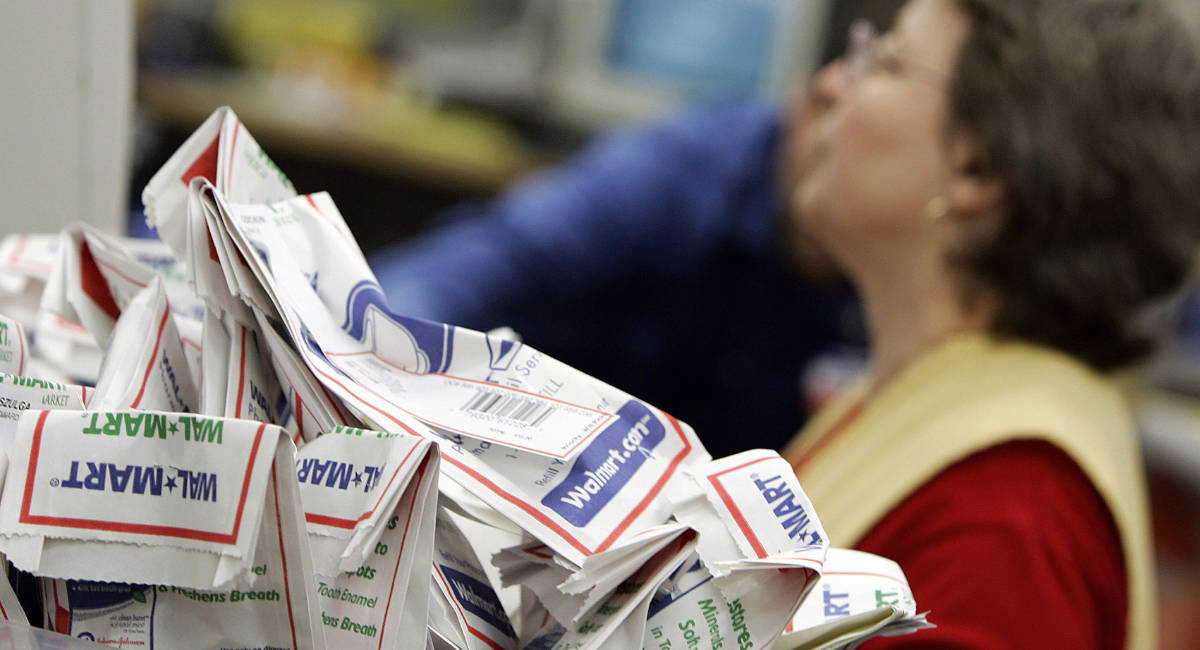Seventeen pro-abortion senators sent letters on Monday to Walmart, Costco, Albertsons, and Kroger pressuring the stores to distribute the abortion pill (mifepristone) through their pharmacies. They also sent a letter to Walgreens — which announced it will not distribute the abortion pill in 21 states — as well as CVS and Rite Aid.
Letter to Walmart, Costco, Albertsons, Kroger
“We write with great frustration that [your company] has not indicated whether it plans to allow your customers to access mifepristone through your pharmacies,” the letter reads. “…We urge you to pursue policies that provide the strongest possible access to the full range of essential health care they need, including mifepristone, and to communicate clearly to your customers about how they can access this care.”
The letter ends, “Pharmacists are one of the most trusted health care providers, and your customers rely on [your company] to help them access their prescribed medications. We look forward to hearing back from you about your intentions to ensure access to this critical FDA-approved product.”
Signing the letter are Senators Tammy Baldwin (D-Wis.), Amy Klobuchar (D-Minn.), Maria Cantwell (D-Wash.), Jeff Merkley (D-Ore.), Patty Murray (D-Wash.), Brian Schatz (D-Hawaii), Alex Padilla (D-Calif.), Richard Blumenthal (D-Conn.), Bernie Sanders (D-Vt.), Wyden (D-Ore.), Cory Booker (D-N.J.), Jack Reed (D-R.I.), Sheldon Whitehouse (D-R.I.), Peter Welch (D-Vt.), Tina Smith (D-Minn.), Debbie Stabenow (D-Mich.), and Tammy Duckworth (D-Ill.).
Letter to Walgreens
The senators also penned a letter to Walgreens, telling the retail pharmacy, “At a time of great confusion about abortion access, your company has done the disservice of adding to it.” Walgreens announced this month that it will not be dispensing the abortion pill in 21 pro-life states following letters from attorneys general in those states warning that it would be illegal to do so.
The letter also reads, “As you continue with the FDA certification process and fully comply with state and federal law, it is critical that your company also provides the strongest possible access to this vital medication and communicates clearly about this.”
Letters to CVS and Rite Aid
The senators also sent letters to CVS and Rite Aid, asking the retail pharmacies how they “plan to notify current customers about access to mifepristone in any given state, where restrictions do and do not exist.” They also ask, “Will your company conduct any community outreach to ensure customers are aware of the full range of legal health services available to them?”
The senators request that CVS and Rite Aid respond to their questions by March 21 to let them know of their “efforts to ensure access to this critical FDA-approved product.”
The abortion pill is not health care
The idea that mifepristone, the first drug of the abortion pill, is “critical” or “essential” is based on the false and discriminatory beliefs that abortion is health care and that pregnancy is an illness. Medical professionals, including pharmacists, exist to help heal patients — not to kill humans, either born or preborn.
Abortion is also not “vital medication” by any stretch of the imagination. “In situations where the mother’s life is truly in jeopardy, her pregnancy must end, and the baby must be delivered,” Dr. Kendra Kolb explained in a video for Live Action. “These situations occur in cases of mothers who develop dangerously high blood pressure, have decompensating heart disease, life-threatening diabetes, cancer, or a number of other very serious medical conditions. Some babies do need to be delivered before they are able to survive outside of the womb, which occurs around 22 to 24 weeks of life. These situations are considered a preterm delivery and not an abortion.”
The Food and Drug Administration [FDA] has been routinely lifting its long-held rules and restrictions on the use of mifepristone, including allowing for mail distribution of the drugs against federal law and removing the safety rule stating women must take mifepristone in the presence of a doctor. The FDA also decided that non-fatal complications of the abortion pill no longer have to be reported — making the abortion pill appear safe though it has been found to be four times more dangerous for women than a first-trimester surgical abortion.







